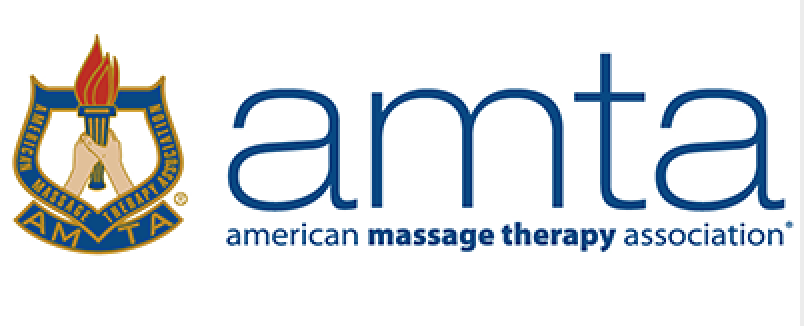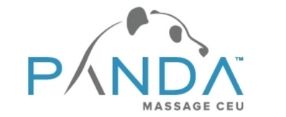How to Create a Continuing Education Course for Massage Therapist

Massage therapy has been around for ages, but only within the last few decades has the practice been regulated, credentialed, and held to rigorous continuing education standards.
In this article, I'll explain the renewal process for Licensed Massage Therapists (LMTs) as well as Board-Certified Therapists in Massage and Bodywork (BCTMBs). Both processes usually require Continuing Education (CE) courses, which you can complete in person or through certain online providers.
Massage Therapy Credential Requirements Vary By State
Because of the recent changes to practice standards, there is no federal regulation of massage therapy licensure. Rather, each state can outline the requirements for massage therapy licensing and continuing education. This interactive map is a handy tool for finding your state's requirements (or lack thereof).
In fact, some states do not regulate massage therapy at all. As of this writing, Kansas, Minnesota, and Wyoming have yet to establish statewide requirements for massage therapists. However, local governments in these states may regulate massage therapy at the county or city level, so be sure to check before you start your practice there.
For the majority of other states, however, to be a licensed massage therapist (LMT) means not only accumulating a stringent set of classwork hours and passing a licensing exam, but also regularly renewing your license with continuing education.
What are the licensing requirements to be a massage therapist?
Licensing requirements vary by state, and a few states have no licensure. To obtain a license, most states require a set number of supervised classwork hours, from 500-1000. You may also need to complete a CPR or Ethics course and pass the MBLEx (Massage and Bodywork Licensing Examination). Note that if you live in Hawaii or New York, you'll need to pass the state-specific licensing exam.
Meanwhile, massage therapists in Vermont don't need a license, but they do need to be Registered. And in place of a license, California offers massage therapists a Certificate for massage therapy practice.
What if I move states?
Renewal discrepancies can pose a problem if you decide to move to a different state. You may be able to have your license endorsed if your previous state's licensing requirements were equal to or exceeding your current state's requirements. However, some states are very strict on this, so be sure to check with the state boards.
You're not confined to one state, however; it is possible to hold multiple licenses. So if you spend winters in Florida but summers in New York, a little extra CE research will ensure you can continue your practice wherever you go.
How do I renew my massage therapy license?
Just as licensing requirements vary by state, so do requirements for renewal. Contact your st ate board for information on how to renew your massage therapy license.
Requirements for massage therapy license renewal
The specifics for license renewal are all over the map: deadline, renewal period, and requirements for continuing education courses (hours, topics, and formats) are unique to each state.
Here's a helpful chart of the renewal requirements by state.
You may notice that several states specify no continuing education (CE) requirements for massage therapists: CO, HI, IN, ME, MA, OH, UT. These set stipulations for licensure but not for CEs.
Depending on your state, you may only need to complete 5 or 6 hours of CEs each year, or you may have to renew every 3 years with 18-36 hours.
Despite this wide range of red tape, most states require that you renew your license biennially by completing 24 hours of continuing education.

What is board certification for massage therapy?
Board certification is separate from licensure, although you need a license to be board-certified.
As a voluntary credential, board certification signifies the highest level of massage therapy practice, and is issued by the National Certification Board for Therapeutic Massage and Bodywork (NCBTMB).
What's the difference between a massage therapy license and board-certification?
Most states require a license, but board-certification is voluntary. A Licensed Massage Therapist (LMT) is considered an entry-level professional in many states, whereas a Board-Certified Therapist in Massage and Bodywork (BCTMB) holds the highest credentials.
Here are the basic differences:
| Level | Credential | Issuer | Renewal Period | |
| License (LMT) | entry-level | required in 45 states | State | annually, biennially, triennially, or never |
| Board-Certified (BCTMB) | highest level | voluntary | NCBTMB | every two years |
How to become a board-certified massage therapist
Besides completing any state requirements for licensure, to become a board-certified massage therapist you must meet a few additional requirements. Unlike the state requirements, however, these steps are uniform throughout the US.
Steps to becoming board-certified:
- Graduate from an NCBTMB-Assigned School (or undergo a Portfolio Review)
- Pass the Board Certification Exam
- Pass a criminal background check ($25 fee)
- Obtain massage therapy state license (whatever those requirements)
- Apply for Board Certification ($250 fee)
- Agree to uphold NCBTMB's Standards of Practice and Code of Ethics
Because of these extra steps, such as a criminal background check and the code of ethics, a board-certified massage therapist is better "vetted" than one that is simply licensed. Board certification is a great option for massage therapists who live in a state without massage therapy regulation, or for LMTs who want to set themselves apart and advance their practice.
Besides the extra credentials, being a BCTMB means joining a community of other massage therapy professionals across the nation. You'll have access to great resources and discounts, such as a free account and swipe reader from Square, a free website on which to advertise your practice, and free access to CEbroker to track and report your CEs.
How to renew your board-certification
The NCBTMB requires that board-certified massage therapists renew their certification periodically by taking continuing education courses. Unlike the process for license renewal, however, these steps are uniform regardless of your state:
- Complete 24 CEs within a two-year period
- Pass a criminal background check ($25 fee)
- Apply for renewal ($85 fee)
- Agree to NCBTMB's Standards and Code of Ethics
Continuing Education Requirements for Massage Therapists
Whether you're licensed or board-certified, there's a good chance you need to complete some CEs every now and then.
Continuing education courses serve to help massage therapists brush up on skills, learn something new, and review policies pertaining to ethics, privacy, and good business practice.
You can find massage therapy continuing education courses on all kinds of topics: massage techniques, anatomy, physiology, kinesiology, therapy history, population studies, ethics, self-care, and even taxes.
CE Requirements for Board-Certification Renewal
If you're renewing a board certification, however, the NCBTMB makes the follow specifications:
- A Minimum of 3 hours in Ethics (no maximum)
- A Maximum of 4 hours in Self-care (no minimum)
- All Massage CE providers must be NCBTMB-approved
In other words: of your 24 CEs for certification renewal, 3 of them must be from Ethics courses, only 4 from Self-Care courses, and all 24 from courses offered by NCBTMB-approved providers.
CE Course Requirements for State License Renewal
Part of your board certification renewal includes renewing your state license, and some states are pickier than the NCBTMB on what types of courses will count. Other states make no specifications at all.
For example, to renew a license in Tennessee, you must complete 24 hours of CEs every two years. Of those 24 hours, two must be for courses in Tennessee law and regulation, and two more must be on massage business practice such as ethics and substance abuse.
How to complete massage CEUs: Formats
There are three general formats for massage continuing education courses: live class, live webinar, or online course.
Given recent events, these latter two formats have lately become much more in-demand; however, some states limit how many online CEs can count towards license renewal.
For example, to renew a license in Delaware, you must complete 24 hours of CEs every two years. Only 9 of these hours may be online – specifically ethics and elective courses. The remaining 15 hours must be from live classes.
To complicate it further, Florida's state board has different requirements for CEs depending on whether this is your first license renewal. For your initial license renewal, you'd need to complete 2 hours on medical error prevention as well as 24 hours of CEs. For your following renewals, the requirements are more specific: professional ethics, human trafficking, Florida law, and medical error prevention constitute 7 of your required 25 CEs, 12 of which must be in-person.
The bottom line? Check with your state board. If you need to renew a license and a board-certification, seek out courses that will fulfill both sets of requirements.
By choosing online formats, you'll have more flexibility on when and where you complete your continuing education. Just make sure you know your state's limits and requirements.
How to find providers of Massage CEs
For board-certification, all 24 of your CEs must come from NCBTMB-approved providers. Depending on your state, a certain number of your total CEs may also fall under this restriction. The best way to earn usable CEs is to find NCBTMB-approved providers.

AMTA: The American Massage Therapy Association is a network of massage therapy professionals. Besides a directory of Massage Therapy schools, practitioners, and job postings, AMTA offers 80+ Continuing Education courses online. Members can access courses at a 40% discount, and some courses are free.

MassageCeu.com: Panda Massage CEU is another board-certified Continuing Education provider. Approved for license renewal in Florida, New York, Texas, and Louisiana, some of Panda's courses are state-specific. However, all are approved for NCBTMB CEs and are administered online. Prices per credit hour range from $7 for bundles to $8.50 for a la carte.

MedBridgeMassage: A leading provider of Continuing Education courses, MedBridge offers on-demand courses and live webinars that are NCBTMB-approved. With topics ranging from marketing strategies to patient conditions, MedBridge Massage is the perfect resource for the massage therapist looking to grow their business, refine their skills, or challenge their practice.
MedBridge Massage CEs
Whether you need to renew your license or recertify as BCMTB, MedBridge ticks the boxes for all your online CE requirements.
For just $79, you'll receive unlimited access to 56 massage therapy continuing education courses. By choosing one provider like MedBridge Massage, you'll avoid the hassle of multiple providers and save money on your continuing education.
If you're worried about your state's requirements, MedBridge Massage makes it easy. Their course catalog includes a filter by state. So whether you live in Nebraska or New Jersey, or are recertifying with NCBTMB, MedBridge Massage will point you to the courses that will count.
Considering how complex state licensing requirements are, this filter feature is more than a convenience. It'll save you time on selecting a course and also help you avoid taking (and paying for) courses you can't use.
Once you've finished a MedBridge Massage course, you can download the certificate instantly. So even if you're cutting it close on your deadline, MedBridge won't hold you up.
Best Massage CE Provider
The quality of a MedBridge CE course is top-notch. MedBridge films their online content with high-definition video, including multiple camera angles and 3D animations. When learning about the body and massage techniques, this attention to detail makes a huge difference on the quality of the course.
Additionally, MedBridge courses are taught by experts in the industry. Many include patient demonstrations, even in a live setting.
Whatever the topic for your online continuing education course, MedBridge has you covered. From tax basics to thai massage, MedBridge courses deliver quality content designed for optimal online learning.
For a special discount on MedBridge Massage subscription, click the link below.


This article was written by Naomi Benecasa, a cellist with a Bachelor's in Music Performance and a Master's in Music Psychology. Fascinated by fitness and fermentation, she provides copywriting and editing services for PTProgress from her home in New York.
Source: https://www.ptprogress.com/continuing-education-for-massage-therapy-ce-requirements/
Belum ada Komentar untuk "How to Create a Continuing Education Course for Massage Therapist"
Posting Komentar